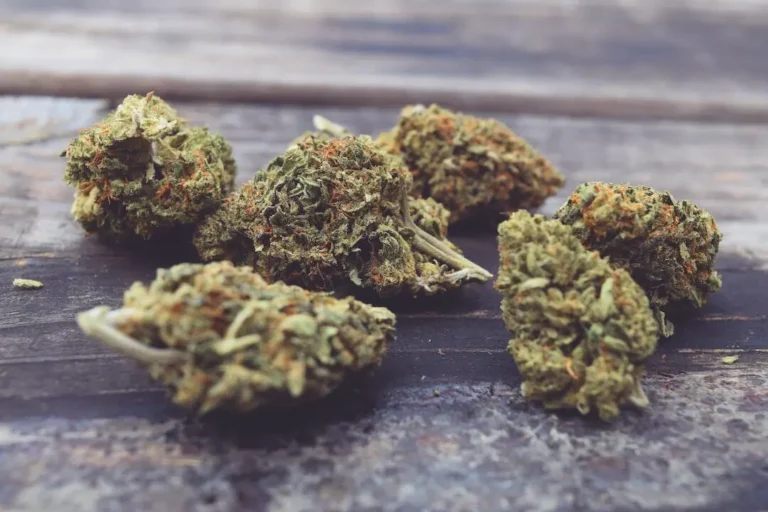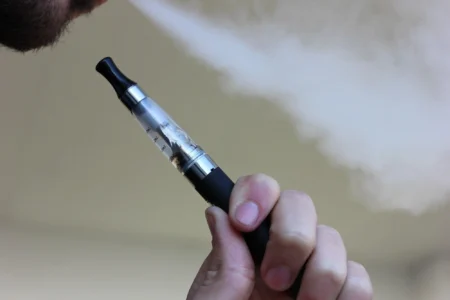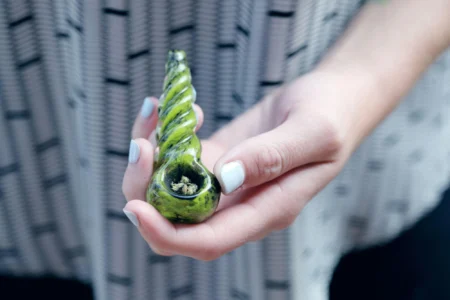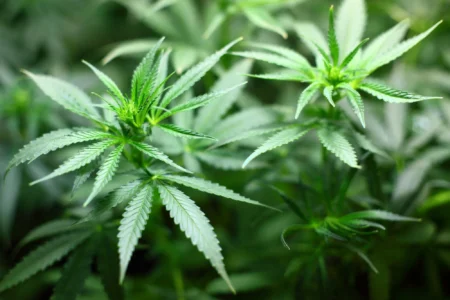Two cannabinoid compounds have taken the spotlight for their potential health benefits and therapeutic uses: THCA and CBD. This is especially true in the world of alternative medicine.
They are found in cannabis plants like hemp and marijuana and are of growing interest to wellness enthusiasts and medical professionals worldwide.
This blog post will take a deep dive into the differences between THCA vs CBD and discuss their respective benefits and uses.
So, if you are curious about their key benefits, this cannabinoid comparison is for you.
Read on!
Chemical Composition of THCA and CBD
THCA (tetrahydrocannabinolic acid) and CBD (cannabidiol) are both cannabis compounds that belong to the cannabinoid family. However, their chemical structures and compositions differ.
THCA is a non-psychoactive compound found primarily in raw cannabis plants. It is the acidic form of THC, the infamous psychoactive compound found in marijuana, and is converted into THC when heated.
On the other hand, CBD is a non-psychoactive compound that can be derived from both hemp and marijuana plants. It is one of the most abundant cannabinoids found in these plants. And, it has gained popularity for its potential therapeutic effects.
Psychoactive Effects: THCA vs CBD
As mentioned earlier, THCA is non-psychoactive, meaning it does not produce the euphoric ‘high’ commonly associated with THC. This is because THCA cannot bind to the same receptors in the brain as THC.
CBD, on the other hand, has no psychoactive effects. It does not produce any mind-altering effects. It is often used to counteract the psychoactive effects of THC.
If you are looking at THCA vs CBD from a psychoactive standpoint, both compounds are non-psychoactive. However, THC (the converted form of THCA) is the only one with psychoactive effects.
Medical Benefits
Both THCA and CBD have been studied for their potential health benefits. But, they differ in the areas they may be most effective.
THCA is known for its anti-inflammatory and neuroprotective effects. It has been shown to help with conditions such as:
- arthritis
- epilepsy
- nausea
It may also have anti-cancer properties and could potentially be used as a treatment for certain types of cancer. CBD, on the other hand, has been studied for its potential to alleviate:
- anxiety
- depression
- pain
It may also have neuroprotective properties and could potentially be used as a treatment for neurological disorders such as Parkinson’s disease and multiple sclerosis.
Legal Status
THCA and CBD have different legal statuses, depending on where you live. In most states, THCA is still considered a Schedule I controlled substance due to its association with THC. However, CBD derived from hemp is legal in all 50 states as long as it contains less than 0.3% THC.
However, the legality of CBD derived from marijuana varies by state. And, it is still considered a Schedule I controlled substance at the federal level.
Method of Consumption
THCA is primarily consumed through the consumption of raw or juiced cannabis leaves. It can also be found in:
- tinctures
- sprays
- oils
CBD, on the other hand, can be ingested orally through capsules or edibles, applied topically as a:
- cream or oil
- inhaled through vaporization
- used sublingually (under the tongue)
Moreover, both THCA and CBD can be found in full-spectrum and isolate forms, with the former containing a variety of other cannabinoids and terpenes.
Bioavailability
Bioavailability refers to the amount of a substance that enters the bloodstream and is available for use by the body. THCA and CBD have different bioavailabilities when consumed in different ways.
When consumed orally, only a small percentage of THCA reaches the bloodstream due to being broken down by stomach acids and enzymes. In contrast, CBD has a higher bioavailability when ingested orally, as it can be absorbed through the digestive system and bypass first-pass metabolism.
When inhaled, both THCA and CBD have higher bioavailabilities as they enter directly into the bloodstream through the lungs.
Entourage Effect
One interesting aspect of THCA and CBD is their potential to work together in a phenomenon known as the ‘entourage effect’.
The entourage effect refers to the combined effects of all the components in cannabis, including cannabinoids, terpenes, and flavonoids. When consumed together, these compounds may have synergistic effects that enhance their overall therapeutic benefits.
Research suggests that THCA and CBD may work together to produce greater anti-inflammatory and neuroprotective effects, making them a powerful duo for certain conditions.
Potential Side Effects
Both THCA and CBD have been reported to have few side effects, but they may affect individuals differently.
THCA may cause some mild digestive discomfort when consumed in large amounts. CBD may also cause drowsiness, dry mouth, or changes in appetite or mood.
It is essential to consult with a healthcare professional before trying either of these compounds, especially if you are taking any medications or have any underlying health conditions.
Research and Clinical Trials
THCA and CBD are still being studied for their potential benefits, and more research is needed to fully understand their effects on the body.
However, early studies and clinical trials have shown promising results for both compounds in various medical conditions. As further research is conducted, we may gain a better understanding of how THCA and CBD can be used to promote health and wellness.
Moreover, it is crucial to support further research and clinical trials to continue uncovering the potential benefits of these compounds fully. Whether you want to discover CBL cannabinoid for yourself or are interested in contributing to the growing body of knowledge around THCA and CBD, there is much more to learn about these fascinating compounds.
Understand the Key Differences Between THCA vs CBD
THCA and CBD are two distinct compounds with different chemical compositions, effects on the body, potential benefits, and legal statuses. While they both belong to the cannabinoid family, they possess unique properties that make them suitable for various uses in alternative medicine.
So, if you are considering incorporating these compounds into your wellness routine or trying them for a specific medical condition, it is essential to understand the differences between THCA vs CBD and consult with a healthcare professional before use.






